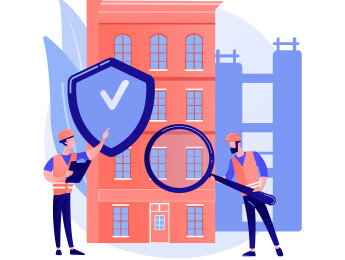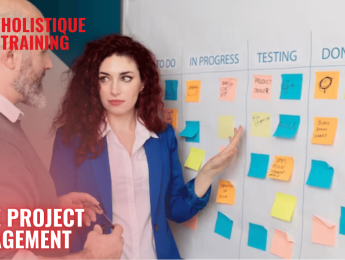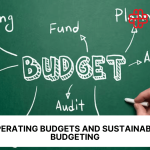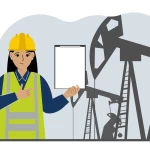As the engines of commerce rev up and organisations strive for excellence in a competitive world, one integral aspect that often takes the backstage but plays a pivotal role is facilities management. The orchestration of facilities, the maintenance of infrastructure, and the harmonious blending of tangible assets are all facets of this dynamic field. Facilities management is more than just a mere cog in the organisational machinery; it's the backbone that ensures the smooth functioning of businesses, the well-being of employees, and the optimisation of resources. This blog post delves into the fascinating realm of facilities management, exploring its essence, the advantages it offers, the skills required, and the enticing question of whether a career in this domain is a path worth treading.
What Is Facilities Management?
At its core, facilities management refers to the strategic coordination and maintenance of an organisation's physical assets and infrastructure. This includes buildings, utilities, equipment, and other tangible elements that contribute to the proper functioning of the business. The primary objective of facilities management is to create an environment that enhances productivity, employee well-being, and operational efficiency while minimising costs and potential risks.
A facilities manager plays a pivotal role in overseeing these aspects, ensuring that the facilities are optimally designed, maintained, and aligned with the organisation's goals. This involves coordinating various tasks, from space planning and maintenance to security, health, and safety protocols.
Table 1: Key components of facilities management
Aspect | Responsibilities |
Space Planning | Efficiently organising and optimising workspace |
Maintenance | Regular upkeep of buildings and equipment |
Security | Implementing protocols for a secure environment |
Health and Safety | Ensuring compliance with regulations |
Infrastructure Design | Aligning facilities with organisational goals |
Benefits of Facilities Management
With a firm grasp on the significance of facilities management in optimising organisational performance, let's now delve into the diverse range of benefits this indispensable function brings to the table. From cost-effective operations to sustainable practices, facilities management proves to be a driving force behind businesses' triumphs and employees' well-being. Let's explore these advantages in detail:
Enhanced Efficiency and Productivity
At the heart of facilities management lies the ability to optimise the workspace for maximum output. Facilities managers are instrumental in designing environments that reduce distractions and promote a conducive atmosphere for employees. Through meticulous space planning and strategic layout, facilities management becomes the keystone to enhanced efficiency and heightened productivity. Employees working in an environment tailored to their needs and devoid of unnecessary disruptions find themselves empowered to deliver their best.
Cost Savings
A well-maintained facility is not merely an operational necessity; it is a strategic investment with far-reaching financial implications. Effective maintenance practices, coupled with energy-efficient solutions, translate into significant cost savings in the long run. Facilities managers, armed with proactive planning, mitigate unforeseen repair costs and curtail utility expenses. This financial prudence ensures that resources are directed toward areas that drive growth and innovation, contributing to the organisation's long-term success.
Safety and Compliance
In the intricate dance of facilities management, compliance with health and safety regulations takes centre stage. Facilities managers are the guardians of employee well-being, implementing robust safety protocols and conducting regular inspections. By ensuring adherence to legal requirements, facilities management not only safeguards the workforce but also shields the organisation from potential legal ramifications. This dual role as a protector of both employees and the organisational integrity underscores the critical nature of facilities management in the modern business landscape.
Sustainability
In an era where environmental consciousness is a societal imperative, facilities management emerges as a torchbearer of sustainability. The implementation of green building practices, waste reduction strategies, and eco-friendly initiatives not only contributes to the organisation's positive environmental image but also significantly reduces its carbon footprint. Facilities management becomes a catalyst for change, aligning business practices with global environmental goals and positioning the organisation as a responsible corporate citizen.
Asset Lifespan Optimisation
Within the sprawling landscape of organisational assets, facilities management takes on the role of a steward, ensuring the optimal utilisation and longevity of machinery and equipment. These assets, representing substantial investments for a company, undergo meticulous management and maintenance under the watchful eye of facilities managers. The result is an extension of their lifespan, maximising the return on investment. In essence, facilities management transforms into a strategic partner, amplifying the value derived from capital-intensive assets.
Focus on Core Business
By entrusting the complexities of facilities management to skilled professionals, organisations liberate themselves to focus on their core business activities. This strategic delegation results in a symbiotic relationship where facilities managers ensure the seamless operation of the physical infrastructure, allowing organisational leaders to direct their efforts toward innovation, expansion, and business development. The division of labour between core business activities and facilities management enhances overall operational efficiency, fostering an environment conducive to sustained growth.
In essence, the benefits of facilities management extend beyond the tangible structures and assets it oversees. It permeates the organisational ecosystem, influencing the culture, productivity, and long-term viability of the business. Facilities management, often operating behind the scenes, emerges as a dynamic force that not only resolves immediate challenges but positions the organisation for sustained success in an ever-evolving business landscape. As we continue to explore the facets of facilities management, the next section delves into the crucial skill sets that empower professionals in this field to navigate its intricate terrain successfully.
What Skill Sets Do Facility Managers Have?
Facilities management demands a unique set of skills that amalgamate technical knowledge with interpersonal prowess. A successful facilities manager must possess the following essential skill sets:
1- Technical Proficiency
At the core of a facility manager's skill set lies a robust understanding of various technical facets, ranging from building systems and HVAC to electrical systems and plumbing. Technical proficiency serves as the bedrock upon which informed decision-making is built. Facility managers must possess the knowledge required to assess the health of infrastructure, troubleshoot issues, and recommend appropriate solutions. This technical foundation ensures that facilities are not only well-maintained but also optimised for efficiency and sustainability.
2- Project Management
The dynamic nature of facilities management necessitates effective project management skills. Facility managers are often tasked with overseeing multiple projects simultaneously, from large-scale renovations to routine maintenance schedules. The ability to juggle these complexities requires strategic planning, organisational skills, and an acute awareness of project timelines and budgets. A proficient facility manager ensures that all moving parts align seamlessly, contributing to the overall efficiency of operations.
3- Communication and Interpersonal Skills
Acting as a bridge between different departments, vendors, and staff, facility managers must be adept communicators. Clear and empathetic communication is essential for ensuring that the various facets of facilities management operate cohesively. From conveying maintenance requirements to liaising with external contractors, effective communication skills enable facility managers to navigate the diverse landscape of organisational relationships, fostering collaboration and ensuring the smooth functioning of facilities.
4- Problem-Solving
In the intricate dance of facilities management, challenges are inevitable. Facility managers must embody a spirit of resourcefulness, swiftly and creatively addressing issues that may arise. Whether it's an unexpected equipment malfunction or a space utilisation dilemma, the ability to think on one's feet and implement effective solutions is a hallmark of a successful facility manager. Problem-solving skills are the key to maintaining the integrity and functionality of the facility under ever-changing circumstances.
5- Financial Acumen
Facility managers often find themselves at the helm of budgeting and cost control. A solid understanding of financial principles and forecasting is essential for making informed decisions that align with the organisation's financial objectives. Whether it's allocating resources for maintenance projects or implementing energy-efficient solutions within budget constraints, financial acumen is a critical skill that empowers facility managers to balance operational needs with fiscal responsibility.
6- Leadership and Team Management
Leading a team of technicians and support staff requires strong leadership abilities. Facility managers must inspire and motivate their team to ensure tasks are completed efficiently and effectively. Effective leadership involves setting clear expectations, fostering a positive work culture, and providing the necessary support for team members to excel. A cohesive and motivated team is the linchpin of successful facilities management, and skilled leadership is paramount in achieving this.
7- Adaptability and Decision-Making
Facility managers operate in an environment that is inherently dynamic and subject to change. The ability to adapt to shifting circumstances is crucial for keeping facilities running optimally. Decisions, whether routine or in response to unexpected challenges, must be well-informed and align with organisational goals. Adaptability and effective decision-making ensure that facility managers navigate the evolving landscape of facilities management with resilience and agility.
In essence, the skill sets of facility managers form a versatile toolkit, allowing them to navigate the intricate terrain of facilities management successfully. From the technical intricacies of infrastructure maintenance to the nuanced challenges of team leadership, facility managers are equipped to orchestrate a harmonious symphony that optimises the physical assets of an organisation. The subsequent section contemplates the significant question of whether a career in facilities management is a journey worth undertaking, exploring the myriad opportunities and rewards that this dynamic field offers.
Professional Development in Facilities Management
In the ever-evolving landscape of facilities management, staying ahead demands a commitment to continuous professional development. The field is dynamic, shaped by emerging trends, technological advancements, and evolving best practices. Navigating the future of facilities management involves honing skills, acquiring new knowledge, and embracing industry-specific certifications.
Industry-Specific Certifications
The importance of industry-specific certifications in facilities management cannot be overstated. Certifications such as the Certified Facility Manager (CFM) or Leadership in Energy and Environmental Design (LEED) are more than credentials—they are gateways to specialised knowledge and enhanced credibility in the field. These certifications validate a professional's expertise, demonstrating a commitment to excellence and a mastery of the intricacies of facilities management. As the industry continues to evolve, staying current with the latest certifications becomes not just an option but a strategic necessity for those aspiring to lead in the field.
Embracing Sustainable Practices
The future of facilities management is undeniably intertwined with sustainability. As global awareness of environmental issues grows, professionals in this field should actively seek opportunities to enhance their knowledge of sustainable practices. From embracing green building design principles to implementing waste reduction strategies, staying abreast of sustainable trends positions facilities managers as leaders in the quest for environmentally responsible business practices. Sustainable facilities management not only contributes to a positive environmental impact but also aligns with the broader global movement toward corporate social responsibility.
Networking and Collaborations
Facilities management is a vast and interconnected field. Actively participating in industry events, conferences, and networking opportunities is not just a social endeavour; it is a strategic move for professional growth. Building a strong professional network opens doors to new insights, potential partnerships, and avenues for career advancement. Collaboration with peers and industry leaders facilitates the exchange of knowledge and experiences, creating a dynamic ecosystem that propels the collective growth of facilities management professionals.
In navigating the future of facilities management, professionals must embrace a mindset of continuous learning and adaptability. The industry's landscape is shaped by technological innovations, sustainability imperatives, and shifting organisational priorities. By investing in professional development, acquiring industry-specific certifications, embracing sustainable practices, and actively participating in the professional community, facilities management professionals can position themselves not just as stewards of physical infrastructure but as leaders shaping the future of the field.
Emerging Trends in Facilities Management
As the wheels of progress continue to turn, the field of facilities management is not immune to the winds of change. Emerging trends are reshaping the way facilities are managed, introducing unprecedented efficiency, sustainability, and innovation. In this ever-evolving landscape, three key trends are defining the future of facilities management.
1- Smart Facilities Management
One of the most transformative trends in facilities management is the integration of IoT (Internet of Things) devices and sensors. This technological revolution is turning traditional facilities into smart, data-driven ecosystems. Smart buildings equipped with sensors provide real-time data on energy consumption, space utilisation, and equipment performance. This influx of data allows facilities managers to adopt a proactive approach, predicting maintenance needs, optimising resource utilisation, and reducing operational costs. The result is a leap forward in efficiency and a move towards a more sustainable and cost-effective model of facilities management.
2- Virtual Facilities Management
The advent of virtual facilities management platforms is another paradigm shift in the industry. Leveraging technology, these platforms enable the remote monitoring and management of facilities. Virtual inspections, predictive maintenance, and real-time collaboration are becoming integral parts of facilities management, offering convenience and flexibility in operations. This trend not only streamlines processes but also reduces the need for on-site presence, paving the way for more sustainable and cost-efficient facility management practices.
3- Wellness-Centric Facilities
A profound shift is occurring in facilities management towards a wellness-centric approach. Beyond the traditional focus on infrastructure, there is a growing emphasis on creating environments that promote physical and mental health. Facilities managers are incorporating features such as ergonomic workspaces, natural lighting, and recreational spaces into their designs. This trend aligns with the evolving priorities of the workforce, acknowledging that a healthy and happy workforce is a more productive one. Wellness-centric facilities not only enhance employee satisfaction but also contribute to the overall success and reputation of an organisation.
Is a Career in Facilities Management Worth It?
The decision to pursue a career in facilities management is a personal one, depending on individual interests and career aspirations. However, several factors make this career path worth considering:
a) Diverse Opportunities
Facilities management is a versatile field, offering a kaleidoscope of opportunities across diverse industries. Whether it's healthcare, hospitality, commercial real estate, or manufacturing, the applicability of facilities management is widespread. This diversity allows professionals to immerse themselves in different sectors, broadening their expertise and contributing to a rich and varied professional journey. The ability to adapt skills across industries enhances professional agility and opens doors to a range of exciting career paths.
b) Growing Demand
The evolution of business landscapes has underscored the pivotal role of effective facilities management. Organisations, recognising the impact it has on operational efficiency, sustainability, and employee well-being, are placing greater emphasis on this function. Consequently, there is a steady and growing demand for skilled professionals in the field. The surge in demand not only ensures a plethora of job opportunities but also validates facilities management as a critical component of organisational success.
c) Challenging and Rewarding
Facilities management offers a blend of challenges and rewards that create a tapestry of professional experiences. The field is inherently dynamic, presenting professionals with complex operational hurdles to overcome. Successfully navigating these challenges, whether in the form of intricate maintenance projects or strategic space planning, can be highly fulfilling. Witnessing the positive impact of one's efforts on the efficiency and well-being of an organisation adds a layer of reward that goes beyond the tangible aspects of the job.
d) Career Advancement
Facilities management is not a stagnant career; rather, it provides a trajectory for continuous growth and advancement. With accumulated experience and a commitment to professional development, facilities managers can ascend to higher-level positions. Roles such as facility director or facilities management consultant offer new challenges, increased responsibilities, and the opportunity to make broader organisational impacts. The career pathway in facilities management is, therefore, not only about securing a job but about scaling new heights with each milestone.
e) Job Stability
In the ebb and flow of economic landscapes, facilities management stands as a bastion of job stability. The consistent demand for skilled professionals to manage and optimise physical infrastructure ensures a steady stream of employment opportunities. As businesses expand and diversify, the need for individuals well-versed in facilities management remains constant. This stability provides a sense of security for those pursuing a career in facilities management, making it an attractive option for those seeking long-term professional stability.
f) Contribution to Sustainability
For individuals passionate about environmental conservation, facilities management provides a unique avenue to drive sustainability initiatives. The decisions made in this role directly impact an organisation's environmental footprint. From implementing green building practices to spearheading waste reduction strategies, facilities managers become catalysts for positive change. The intrinsic connection between facilities management and sustainability aligns with global environmental goals, offering a sense of purpose for those seeking to make a meaningful contribution to the planet.
In short, the question of whether a career in facilities management is worth pursuing transcends mere job prospects. It delves into the fabric of professional fulfilment, growth, and the ability to contribute meaningfully to organisational success. Facilities management, with its diverse opportunities, growing demand, challenges, and rewards, stands as a compelling career choice for individuals with a passion for optimising physical infrastructure. As we continue to shape the narrative around facilities management, the subsequent sections explore emerging trends in the field and its global impact, providing a panoramic view of the evolving landscape of facilities management.
Conclusion
In conclusion, a career in facilities management offers a compelling blend of technical expertise, problem-solving challenges, and opportunities to contribute significantly to an organisation's success. With a range of benefits, from cost savings and improved efficiency to sustainability and job stability, facilities management stands as a rewarding and worthwhile career choice for individuals with a passion for managing the physical infrastructure and optimising workspaces. Embracing this dynamic field opens doors to a rewarding professional journey, impacting businesses and the well-being of employees alike, as we continue to shape the future of workspaces and create better environments for generations to come.
For those eager to embark on this dynamic journey, our course, ‘Excellence in Facilities Management,’ awaits as your compass to mastery in this field. Dive into a comprehensive learning experience designed to sharpen your skills, navigate emerging trends, and position yourself as a leader in shaping the future of facilities management. Enrol now and chart a course for a rewarding professional adventure, where you play a pivotal role in creating better environments for generations to come.
Frequently Asked Questions(FAQ)
What does facilities management encompass?
Facilities management involves strategic coordination and maintenance of an organisation's physical assets, including buildings, utilities, and equipment, to promote efficiency and employee well-being.
What are the benefits of effective facilities management?
Effective facilities management enhances productivity, reduces costs through optimised maintenance, ensures safety compliance, promotes sustainability, and allows organisations to focus on core business activities.
What skill sets are essential for a facilities manager?
Facilities managers need technical proficiency in building systems, project management, communication, problem-solving, financial acumen, leadership, team management, and adaptability.
Is a career in facilities management versatile?
Yes, facilities management offers diverse opportunities across various industries like healthcare, hospitality, real estate, and manufacturing, providing professionals with exciting growth prospects.
How does facilities management contribute to sustainability?
Facilities managers can drive sustainability initiatives by implementing green building practices, energy-efficient solutions, waste reduction strategies, and promoting an eco-friendly image for the organisation.





















